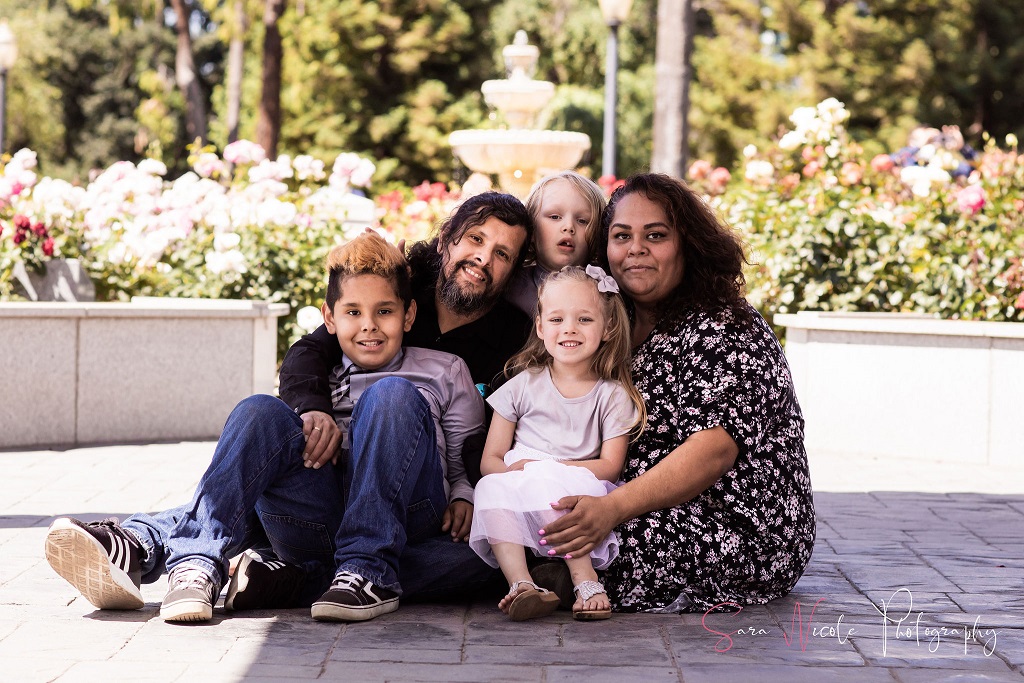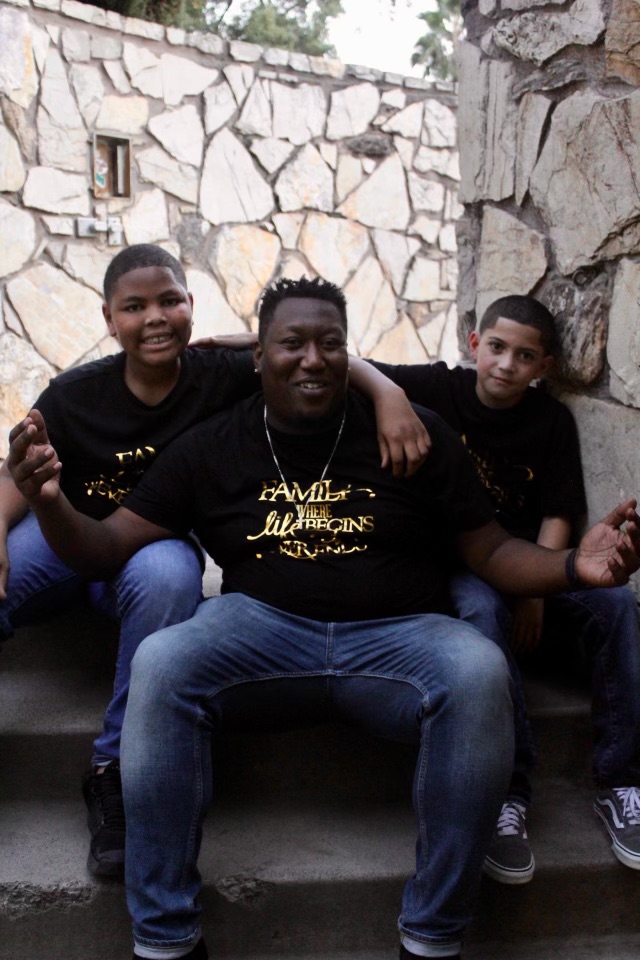
Stanford Sierra Youth & Families: Healing Families for the Sake of the Children
Stanford Sierra Youth & Families (SSYAF) is a place where families can heal from all sorts of challenges and trauma. The organization knows that healing families means creating an environment where children can thrive. Part of the issue is keeping kids out of institutions and giving them a sense of permanency and security either by reuniting them with their families, or by placing them with other families who will give them long-term, loving care.
We too, believe that helping children needs to be a holistic effort that strengthens and supports the whole family. That is why we felt so good about having a small part in the critical work of this organization by way of our small grant program. We share the mission of giving kids a feeling that they belong, and helping families to learn how to heal, moving forward.
We spoke with SSYAF Director of Development Christie Shorrock:
Kars4Kids: Stanford Sierra Youth & Families serves over 6,000 youth and families every year. That’s a lot of people served! Can you tell us something about them? Who are the people you are serving?
Christie Shorrock: We serve kids, young people (ages birth to 21), and their families. The majority of the youth we serve are teens. The youth and families we serve have experienced abuse, neglect, mental or behavioral health challenges, or other difficult circumstances.
We help them heal from trauma, manage their emotions in healthy ways, and develop skills that will help them lead meaningful, healthy, productive lives. Our mission sums it up well: Transforming lives by nurturing permanent connections and empowering families to solve challenges together, so every child can thrive.
Kars4Kids: Tell us about your juvenile justice program. What are the goals of this program? What is the recidivism rate for youth in Northern California?
Christie Shorrock: Our Juvenile Justice Intervention Services (JJIS) is a prevention and intervention program focused on positive outcomes for youth involved with the juvenile justice system. The Sacramento County Probation Department refers youth to the program. The program assesses each youth’s individual treatment needs and matches them to the appropriate service intervention(s), including: counseling, skill building, peer and family support services, case management, and linkage to other community-based services.
We provide JJIS in collaboration with the youth’s probation officers, teachers, mentors, and other figures of support, in the home, at school, and in the community. The program is strengths based and helps youth build resilience and reinforce positive connections to family, peers, and the community.
According to the California Department of Corrections and Rehabilitation, youth recidivism has declined over a five-year period from just over 50% to about 34%. The youth we’re working with are experiencing positive outcomes too. 82% of the youth we serve in JJIS demonstrate improvement in functioning across a wide range of areas. At close of our most recent quarter, 92% of the youth we serve across all our programs had not received a citation, been arrested, or violated their probation.
Kars4Kids: Can you talk to us about the specialized mental behavioral health services you provide? What might constitute a “safety net” for the families you work with?
Christie Shorrock: We provide a wide range of specialized mental and behavioral health services. Some are designed specifically for children in foster care. Some are designed to keep kids with their families—they serve as an intervention to prevent the child from entering foster care in the first place. Other forms of care are designed to help youth transition from a higher level of care into a family setting. Many of these services act as a safety net to keep youth safe and at home with their families, out of institutions.
Kars4Kids: You have a family preservation program. How do you determine whether or not a family should be preserved or reunited?
Christie Shorrock: Each family is unique. The set of conditions under which they are living, their individual and combined strengths and challenges—all these factors contribute to assessing whether or not unification is advisable. Whenever possible, we strive for reunification. And when reunification does happen, our involvement doesn’t end. We then support those families for as long as they need with counseling, advice, and other forms of support, free of charge to them, to ensure the best possible outcome. This kind of care requires a lot of work and attention, but the investment is worth it for the sake of the child, the family, and the community at large.

Kars4Kids: Why is there such a shortage of foster homes in California?
Christie Shorrock: In 2015, California’s governor signed into law what’s become known as Continuum of Care Reform. CCR’s goal is to improve outcomes for youth in foster care. One important aspect of CCR is ensuring that all children live as members of a committed, nurturing, and permanent family. Years ago, kids in foster care were too often moved from one foster home to the next to the next. This is particularly destabilizing and unhelpful for children who’ve already been traumatized.
With CCR, the recruitment and retention of qualified and compassionate resource families (formally known as foster families) is key. A resource family opens their heart and home to a child in foster care, while social workers attempt to reunify the child with their biological family. If reunification proves impossible, then the resource family agrees to adopt the child.
Qualifying as a resource family does require some additional training and support, but we’re convinced there are many, many families out there willing to do this important work. They simply don’t know about the need yet. Kars4Kids can help us get the word out.
Kars4Kids: You offer “Wraparound” and “Prevention Wraparound.” Can you give us an overview of these services you provide?
Christie Shorrock: Stanford Sierra Youth & Families’ Wraparound and Prevention Wraparound “wrap” youth and families with comprehensive care to help keep children/youth safe and at home, in school, and thriving. Young people gain the support and guidance of our Wraparound services to help them remain at home or transition safely to a permanent family or healthy, independent living. These services combine a family-centered, strengths-based, needs-driven and team-driven approach with individualized and wellness-focused interventions. Our approach is comprehensive and outcome driven utilizing creative and individualized strategies to address each family’s needs.
Kars4Kids: What is Ryse Above? What are the benefits of this program?
Christie Shorrock: RYSE stands for Resilient Youth Safe & Empowered. RYSE Above provides support services for youth with substance use disorders and co-occurring mental health needs. These substance use and prevention treatment services are provided for youth and adolescents, ages 12 to 20, in Sacramento County.
RYSE Above builds on the youth’s strengths and successes, reduces substance use, increases resilience, reinforces family connections, and improves overall wellbeing.
Kars4Kids: What is “legal permanency” in regard to youth in foster care or those up for adoption, and why is it important? Can you tell us a bit about your Destination Family program that addresses this issue?
Christie Shorrock: By legal permanency we mean reunification with the child’s biological family, adoption, or entrance into a legal guardianship with an adult. In the most basic terms – the opportunity for every child to grow up in a safe, nurturing, and permanent family home.
Destination Family is our award-winning approach to legal permanency. Destination Family specializes in working with children some might call “hard to adopt.” These are children living with one or more barriers to permanency. For example, they might be an older youth. They might require special medical care or belong to a set of siblings that need to be adopted together.
For most kids in Destination Family, the program is their last, best hope at permanency, at becoming part of a loving, permanent family. These are kids who’ve been in foster care for several years already. The county has deemed reunification with the biological family to be unadvisable. At the same time, the county is no longer trying to find an adoptive family for the child. Without Destination Family, these kids would remain in foster care until aging out of the system to face adulthood on their own. Youth who age out experience some of the worst outcomes of any population.
We work one-to-one with these youth, helping them heal from past trauma and preparing them emotionally and socially to thrive within a permanent family. The process is not rushed or hurried. Instead, each Destination Family worker takes their time to gain the child’s trust, understand their strengths and challenges, and then coordinates with others to find that child the permanent, loving family they need and deserve.
Last year, our Destination Family program won the U.S. Department of Health & Human Services’ Adoption Excellence award for the program’s dedication and innovation in finding permanent, loving homes for children and older youth waiting in foster care.
Kars4Kids: You have staff members with personal experience in the child welfare, mental health or juvenile justice systems as consumers and/or parents or caregivers. What do they contribute to the work you do with families and children?
Christie Shorrock: All of our services are youth and family centered. We honor and place their voices and experiences at the center of care. We do this in a number of ways.
We regularly incorporate family and youth panels into our care. During these panels, our youth and family clients provide direct feedback to our staff and management. Their experiences, critiques, and praise help guide program development and improvement.
Our Family & Youth Partnership is another agency-wide approach to incorporating youth and family experiences into our care. Our Family Partners and Youth Advocates have direct personal experience as clients of child welfare, mental health, and/or juvenile justice. They work with and advise current clients, helping them navigate and benefit fully from these systems of care.
We also partner with more than a dozen local, regional, and national colleges and universities. Together, we identify promising students and recent graduates who are interested in pursuing careers in social work, who have themselves participated in these systems of care, and who reflect the diversity of the youth and families we work with.
Kars4Kids: What’s next for Stanford Sierra Youth & Families?
Christie Shorrock: We look forward to many more years of continuing to fulfill the organization’s vision of communities with safe, lifelong connections for all young people, built and strengthened through generations of empowered families.